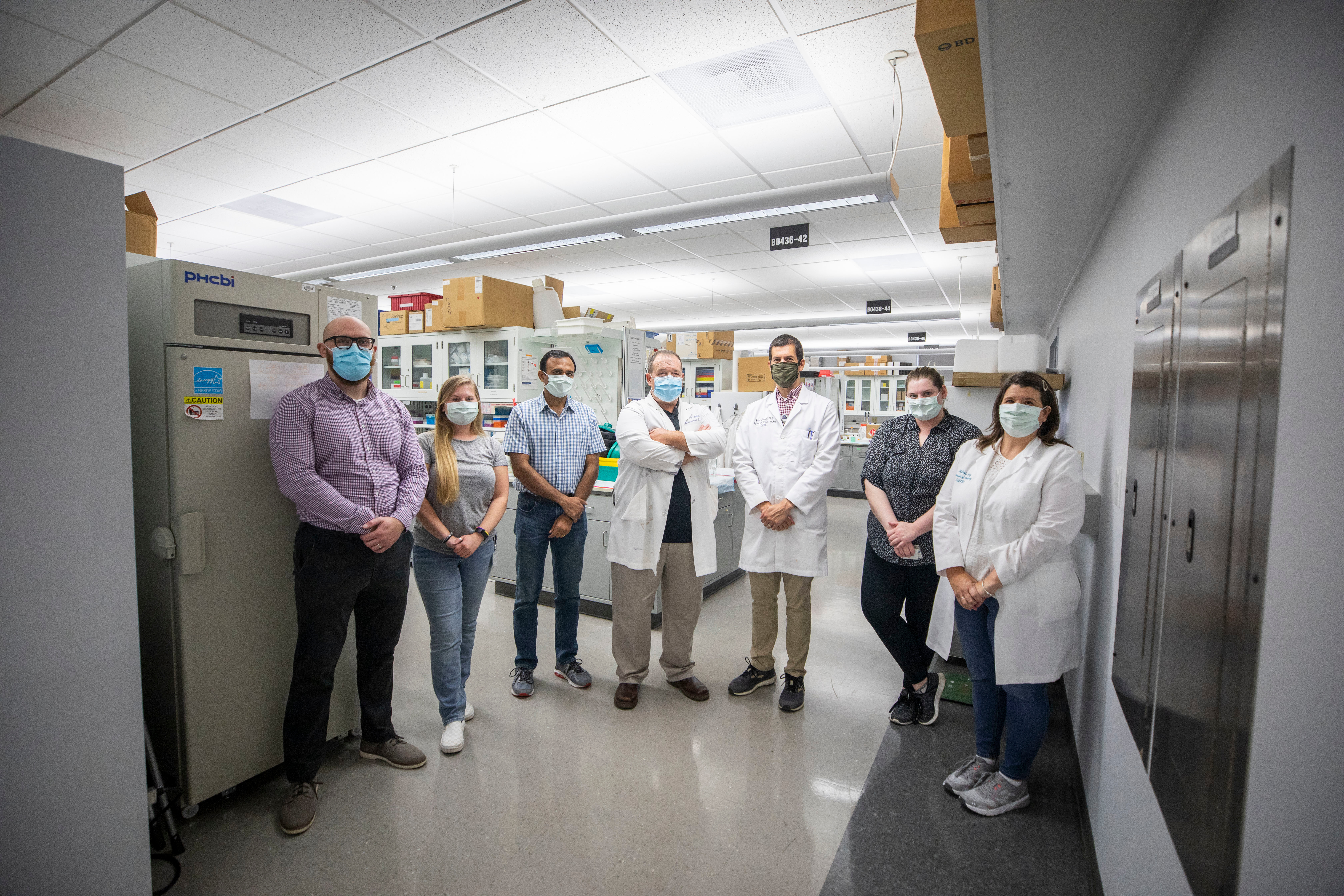University of Kentucky SCoBIRC research team provides exciting evidence for delayed treatment of TBI
A study by UK SCoBIRC was recently published in Brain. The study shows that delayed mitochondrial-targeted therapy with pioglitazone improves functional outcomes following experimental traumatic brain injury. The manuscript led by Dr. Patrick Sullivan (Department of Neuroscience at UK and Research Physiologist at Lexington VA Healthcare System) and Dr. Brad Hubbard (Research Physiologist at Lexington VA Healthcare System and Department of Physiology at UK) demonstrates that pioglitazone interacts with the mitochondrial protein mitoNEET to elevate acute mitochondrial bioenergetics and attenuate on-going cognitive deficits and MRI-assessed brain atrophy.
This is a hallmark finding in a long line of research that demonstrates rescue of mitochondrial function early after injury results in alleviation of on-going deficits in behavior. Furthermore, the findings demonstrate that therapeutic targeting of mitochondrial dysfunction is dependent on timing after traumatic brain injury that this is dependent on the dynamic state of mitochondria following injury.
Currently, there are no FDA-approved drugs for TBI. For successful clinical translation, compounds should be identified that have a wide therapeutic window after injury. This study also shows potential benefits to allowing the early endogenous injury response to occur. Many preclinical efficacy studies rely on immediate therapeutic dosing to examine neuroprotective or behavioral outcomes. This study should highlight the potential benefit of delayed treatment as a focus of preclinical studies. It also shows mitochondrial targeting as a useful treatment strategy. https://doi.org/10.1093/brain/awab341
